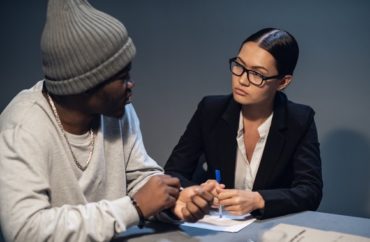
‘Their oral presentation skills shouldn’t affect’ whether they’re found guilty
Cornell University appeared intent on rushing through changes to its disciplinary procedures that would, among other things, ban law students from representing accused students and expand Cornell’s jurisdiction off campus.
The comment period on the revisions was only a month and the university gave students just two days’ notice about a public forum.
The Board of Trustees ignored last-minute student government resolutions demanding a delay on the final vote, approving the revisions Thursday, The Cornell Daily Sun reports:
Concerns about the code ranged from issues of jurisdiction — changes to the new student code of conduct would be under the purview of Vice President for Student and Campus Life Ryan Lombardi instead of the [University Assembly] — to the reduced role of law student counselors for students in judicial proceedings.
The Graduate and Professional Students Assembly and the University Assembly, which currently has authority to amend the code of conduct, passed resolutions unanimously on Tuesday to preserve the UA’s role. The undergraduate Student Assembly passed a resolution the previous Friday asking for a vote delay until spring semester, to give students more time to share feedback.
The revisions fundamentally undermine shared governance, according to GPSA Executive Vice President Nikola Danev, by giving the GPSA and SA an undefined “consultative” role on a code committee, but making no provisions for situations where they disagree.
MORE: Law profs go to court to force Cornell to follow its own rules
The UA, which has now been sidelined, “presents a unified decision from all the constituent assemblies,” Danev said.
The university reiterated its earlier talking points that the changes are intended to make the disciplinary process less “adversarial” and “legalistic,” which functionally means stacking the deck against accused students.
Its press release claims the campus life office is more suited to “restorative justice” and “informal dispute resolution” than the Office of the Judicial Administrator.
Danev challenged this benign rationale. The law students, known as “Judicial Codes Counselors,” have historically guided students through investigations and interviews, spoke on their behalf at hearings and even cross-examined witnesses.
Now these public defenders are banned from acting as, well, public defenders. Their role is limited to writing out questions ahead of time unless the most severe sanctions are on the table.
“It is incredibly intimidating for some students, especially international students like myself, to tell their stories clearly and concisely on their own, and their oral presentation skills shouldn’t affect whether or not they’re found responsible by the OJA,” Danev said.
The only positive for accused students: Cornell decided against lowering its evidence standard. It will remain “clear and convincing,” so that convictions are based on evidence that is “highly and substantially more likely to be true than untrue.”
MORE: Cornell revisions would ban law students from representing accused students
IMAGE: Ann Kosolapova/Shutterstock
Like The College Fix on Facebook / Follow us on Twitter






Please join the conversation about our stories on Facebook, Twitter, Instagram, Reddit, MeWe, Rumble, Gab, Minds and Gettr.